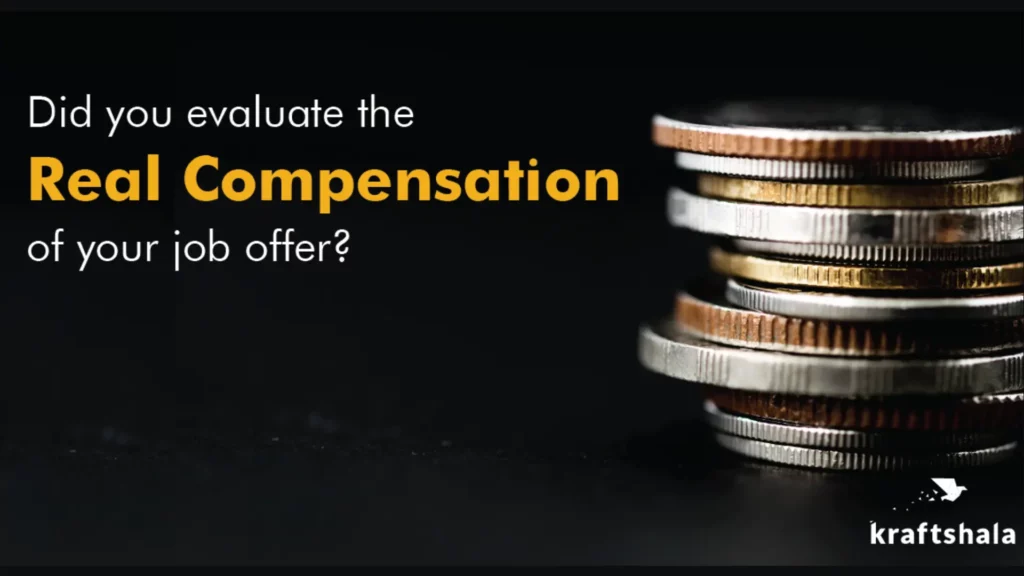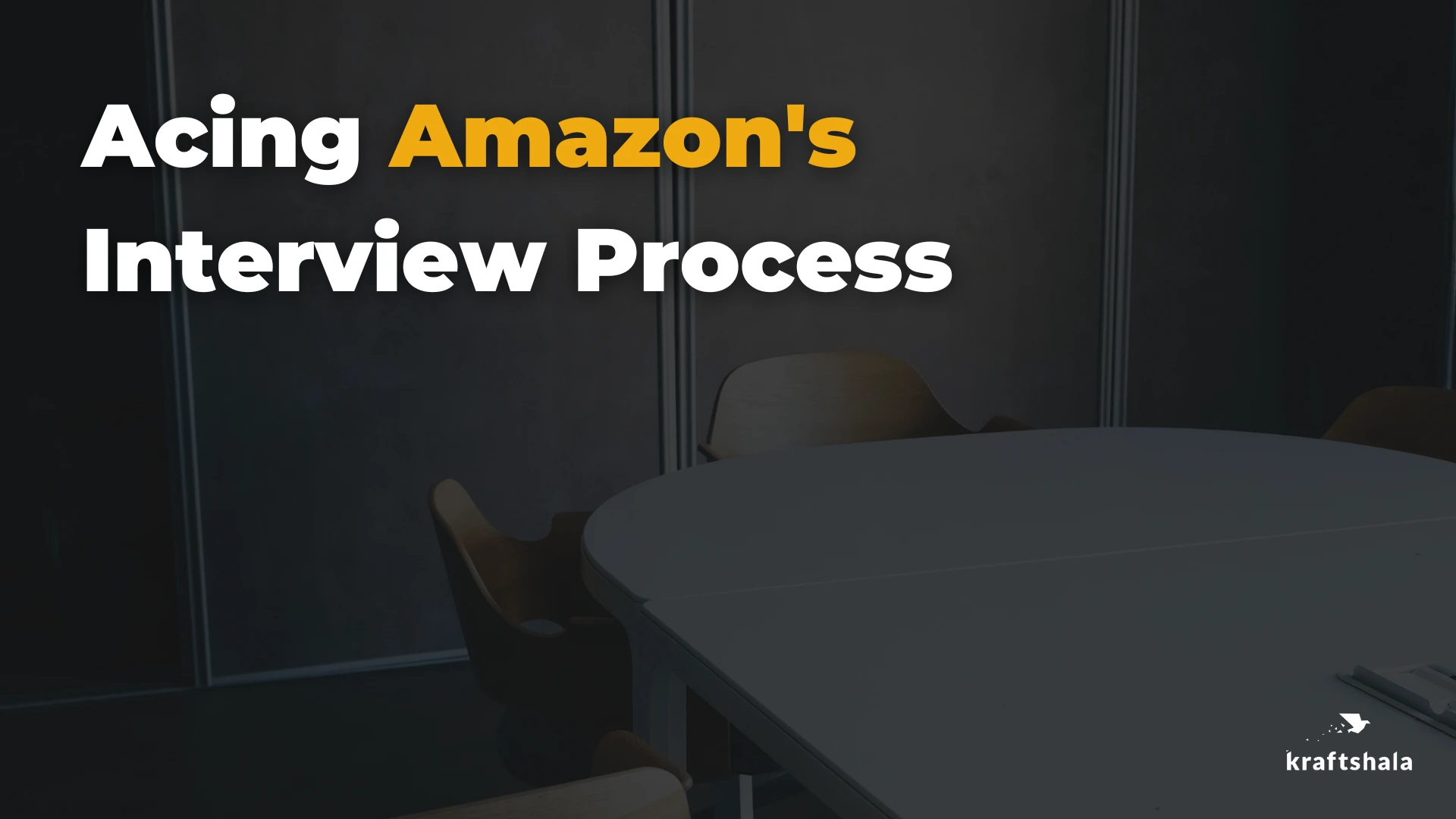Did You Evaluate The Real Compensation of Your Job Offer?

Context
At Kraftshala, we recently made an offer to a talented young professional who had graduated from a top business school earlier this year but was not entirely pleased with the job she ended up with. She eventually did not take up the role we offered, in part because of the compensation. Our offer was about 15% less than what she was making in her current role if one compared the cash component only (there was substantial equity in our offer over and above that). I found something off in her conclusion on compensation, although at that moment I couldn’t quite put it down. I have since been able to better identify my concerns.
How do Candidates Evaluate The Offers?
Most people, but especially campus students, tend to think of compensation in immediate terms. It goes something like this:
Compensation of a Job Offer = Money Earned in the coming year
A more thoughtful analysis would reveal that compensation is better understood in terms of the time required, and hence capture compensation in terms of Return on Time Invested (ROTI):
Compensation (ROTI) = Money Earned in the coming year/ Time demanded by the job
But that’s where the analysis typically stops.
How to Actually Evaluate the Offer?
The problem with that formula is that it only accounts for short-term returns. If money really mattered to you, you would want to consider not just the money you will earn in the coming year but also how the actual effort you put in will contribute to your long-term career earnings. And since compensation, over a period of time, is a function of your skill and network (relationships)*, a better way to measure real compensation is:
Real Compensation = (Money earned + Skill developed + Networks built)/ Time demanded by the job
This means that each minute that you spend in a job doing mechanical, repetitive tasks in a bureaucratic setup instead of working in a job that develops your expertise, creativity, and leadership skills, and better still, exposes you to other smart and ambitious people, has a substantial cost associated with it (beyond the obvious one that the former is boring and dispiriting). The fact that you can’t put a number to attributes like skill development and network building does not make them any less real, or significant. On the contrary, they offer an opportunity for disproportionate returns precisely because they are so often ignored.
It’s a mistake that’s quite common on business school campuses in particular. A trap that perhaps deserves its own name due to its sheer pervasiveness. The Immediate Compensation Trap can be defined as the tendency to focus on stated money only while evaluating the compensation of a job offer, disregarding the skill and network-building benefits that contribute to long-term career earnings.
Of course, the Trap affects not just current students and recent alumni but older professionals as well. But its’ impact on younger people is more severe because developing skills and networks early helps you reap their benefits for many more years. The cumulative loss for younger professionals is substantially more.
Sometimes, smart and ambitious job seekers do see the Trap but are unable to resist falling for it due to an entirely different reason. Ambitious people are the ones most susceptible to the allure of competing and winning. Compensation for the ambitious is often about keeping score and not just about building a better lifestyle. The higher the Immediate Compensation of a job, the greater the number of people it attracts, the more desirable it becomes. I certainly fell for the Trap on campus (I have since realized that my viewing of a career as a competitive race was likely an even bigger growth inhibitor, but that’s a topic for another time).
The young professional in question currently has a job with a PSU. Working for a government entity can have many benefits- job security being the most obvious one, especially when compared to an early-stage company. But in terms of Real Compensation, the offers did not come close.
*Luck is also a factor (represented through unforeseen market forces). But if we know anything about the future, it is that the emerging knowledge economy is likely to accentuate the value of creativity, deep expertise, leadership skills and networks, since automation will take care of the mechanical, repetitive work.
Of course, a job is about more than just compensation. Research suggests that for people earning above a certain threshold, additional income leads to no increase in happiness. Finding meaning in work does.
Some people argue that taking a salary cut requires a risk appetite that only a few people possess. On the contrary, in cases such as these, a much greater risk is of being less employable in a few years leading to restricted opportunities. My guess is that our hesitation stems from our tendency to worry about what our friends/ family/ colleagues will think. Sam Altman put it well: “Most people want to be accepted, so they won’t take risks that could make them look crazy, which actually makes them wildly miscalculate risk.”
This article is written by Varun Satia , Founder and Chief Storyteller at Kraftshala and was first published on LinkedIn by him.







